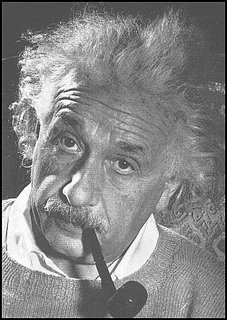The Confession - by John Grisham - My Review
 ***Please note: this review contains spoilers***
***Please note: this review contains spoilers***The subject matter of this disturbing book is the death penalty – more specifically, wrongful prosecution and the miscarriage of justice.
It is a story about a serial sex offender whose life is allegedly coming to an end because of an inoperable brain tumor. His confession, which could exonerate a young black man - erroneously accused, convicted and doomed to die in Huntsville, Texas - comes too late.
Here is what the book made me think about:
When we are young, it makes sense to see the world in rather absolute terms. Because our experiences are limited, we rely on quick, easy answers as a matter of survival. With the passage of time our life experiences teach us there are few issues that are either ’black’ or ‘white.'. Consequences are measured and decisions are weighted. The greater good is balanced against personal gain and self-preservation. Adult decision-making is a matter of pragmatism versus dogma and reality versus the ideal.
With age comes experience whose continual ebbs and flows slowly soften the boundaries between right and wrong. Our absolutist world segues into the realm where shades of gray predominate. The anticipation of youth molts into the reminiscence of maturity, a longing for a simpler time. Never is it so apparent than when we are facing times of crisis.
Intuitively, we understand that when facing calamity, we ought to slow down. Experience tells us trying times are when reason ought to prevail. Sadly, something about the Human condition prevents such rationality and reliance upon logic. Despite how irrational it may be, in a world that seems ever unwinding and deteriorating - especially in times of stress and deep emotional turmoil – the quickest, the most definitive - the most sought answer lies in simplicity. And, that is where our problems begin.
As a civilized society, our obvious remedy is to dole out justice through legally accepted venues. We have developed a legal system of codified laws prescribing punishment for breaking the law from the most mundane of offenses to the extreme. Understandably - with an eye focused on religion for guidance - we seek a means of how exactly to mete out that justice fairly, equitably and without prejudice. Taking of a Human life is a serious matter and arguments based on religiosity carry great sway over how we - as a society - deal with lethal Human transgressions via state-sanctioned execution.
Now, if the media is to be believed, violence is rampant in America. There is little doubt that they have a powerful influence over the collective consciousness of those who tune in for the news coverage. It seems like there is no limit on just how cruel - even vicious - Humans can behave toward one another. Now I am not solely accusing 'the media' of perpetrating mass hysteria. There is a need and there is a need to feed. This symbiosis plays itself out on a more practical concern. The Media's primary motivation for patronage is ratings driven and the ever present, bottom line dictates of supply & demand. America is enthralled with violence. We can't get enough of it. Indeed, crime does pay. We love the 'shock and awe.'
Couple the ratings-driven pimping of violence and the unlimited supply if politicians who pander to the American public by clamoring for law & order, inciting fear and it is no wonder that God-fearing Americans have become fluent in the double-speak of religion where they can simultaneously lament the murder of a fetus and fervently abide in their belief of the sanctity of Capital punishment all in one fell swoop.
Perhaps I am giving into my own reminiscences here but nowadays, there seems to be a great void in leadership both politically and in houses of worship. I am not only talking about American society. It is being played out all over the planet. Humanity throughout the world - owing to the maladies of emotionally driven responses, swathed in religiosity - account for the more predictable Human condition where vengeance and fear take precedence over rationality, compassion and forgiveness. We opt for the immediate - the dramatic.
Personally, I fail to draw any clear distinction between the Sarah Palins and the Muqtada al Sadrs of the world - well maybe Sarah is right - the difference comes down to lipstick ...more like lipschtick.
I am convinced that is precisely why Cable News and Faux news networks have become so popular: they focus on problems and offer sound-bite solutions. Like snacks, the messages being proffered for complex, difficult issues the solutions are filling, even tasty but completely lacking in nutritional value. Junk news is society’s junk food, its pre-processed agenda.
Grisham weaves a decent story that reveals less-than-honest ambitions and motivations of key players in the process of pursuing justice. Grisham’s character, Robbie Flak – the pugnacious defense attorney - sums it up very well when he says; “Death binds people in odd ways…”
The first killer in this story’s most immediate victims were Nichole Yarber, the seventeen year-old cheerleader he stalked and her classmate, Donté Drumm – the fall guy slated to die. The second story carries larger implications; society is the ultimate victim, and ironically, the perpetrator, the second killer.
I suppose the most disturbing part of this story is how, through legal processes and religious appropriation, something as sacred and high-minded as justice can be meted out so rationally and, with so much slight-of-hand. In order for society to move forward, it does so with a conventionality of thought and unquestioned respect for a process that everyone assumes is working flawlessly and free of the taint of personal agendas. This is a story about process rum amok. Despite America’s best efforts to assure fairness and lack of bias, meting out justice in such a routine manner - there are countless points along the way where rules can be bent, manipulated and ignored outright as a means of affecting the outcome.
The Confession explores the motivations of killers, how they differ individually and how they share a certain commonality. It is an exploration of how the individual offense touches off a cascade of events where posterity reveals, we collectively become killers. The characteristic ideal of blind justice is usurped through winks, blinks, nods and squints; it is anything but just.
Capital punishment is something I do not agree with for reasons philosophical, religious, spiritual, moral and even fiscal considerations. I understand that such a stance nowadays is unpopular because, contrary to exhaustive research, swift and terrible punishment is popularly perceived to be a powerful deterrent for would-be rapists and murderers.
Violence is infectious. It is self-perpetuating - its beginnings, imperceptible. However, once seeded, it lies in wait - like some inoculated virus until the right conditions to manifest itself. It wears many masks - some brutal and others cloaked in righteousness. But, let's not deceive ourselves; it is still violence.
Aristotle said, “Anyone can become angry - that is easy, but to be angry with the right person at the right time, and for the right purpose and in the right way - that is not within everyone's power and that is not easy."
There is a time to be indignant and injustice is something to be indignant over. Robbie Flak is right to be angry just as society is right to be upset at the violence perpetrated upon the innocent. But, we can never forget that - with rare exception - society's monsters are often a product of their environment just as the self-righteous and the indignant are. People who feel powerless relish it wherever and whenever they happen upon it and its intoxicating effects are difficult to restrain, confine or relinquish. Perhaps that is the greatest reason we need to be reminded that we are all connected.
I agree with the Poet John Donne, "Each man's death diminishes me, for I am involved in mankind..." [For Whom the Bell Tolls], and that is the lasting thought I can take away from this book which serves to remind the reader that extreme reactions, fueled by moments of passion where fear and anxiety are stoked by the desire for revenge - while regrettable, cannot be reversed
I am reminded of a cartoon series character named Pogo, created by Walt Kelly back in the seventies. Pogo said, “We have met the enemy and he is us.” I think this is what Grisham is trying to get across in his story line.
I haven't read all of Grisham's books. He has touched upon the topic of the Death Penalty in two other books, “An Innocent Man” and “The Chamber.” The former actually chronicles a real-life miscarriage of justice and I have not read it yet. I have read the latter and I did like it, despite the ending.
Thus far, I have read seven Grisham books and for me, The Confession ranks in the top two.




0 Comments:
Post a Comment
<< Home